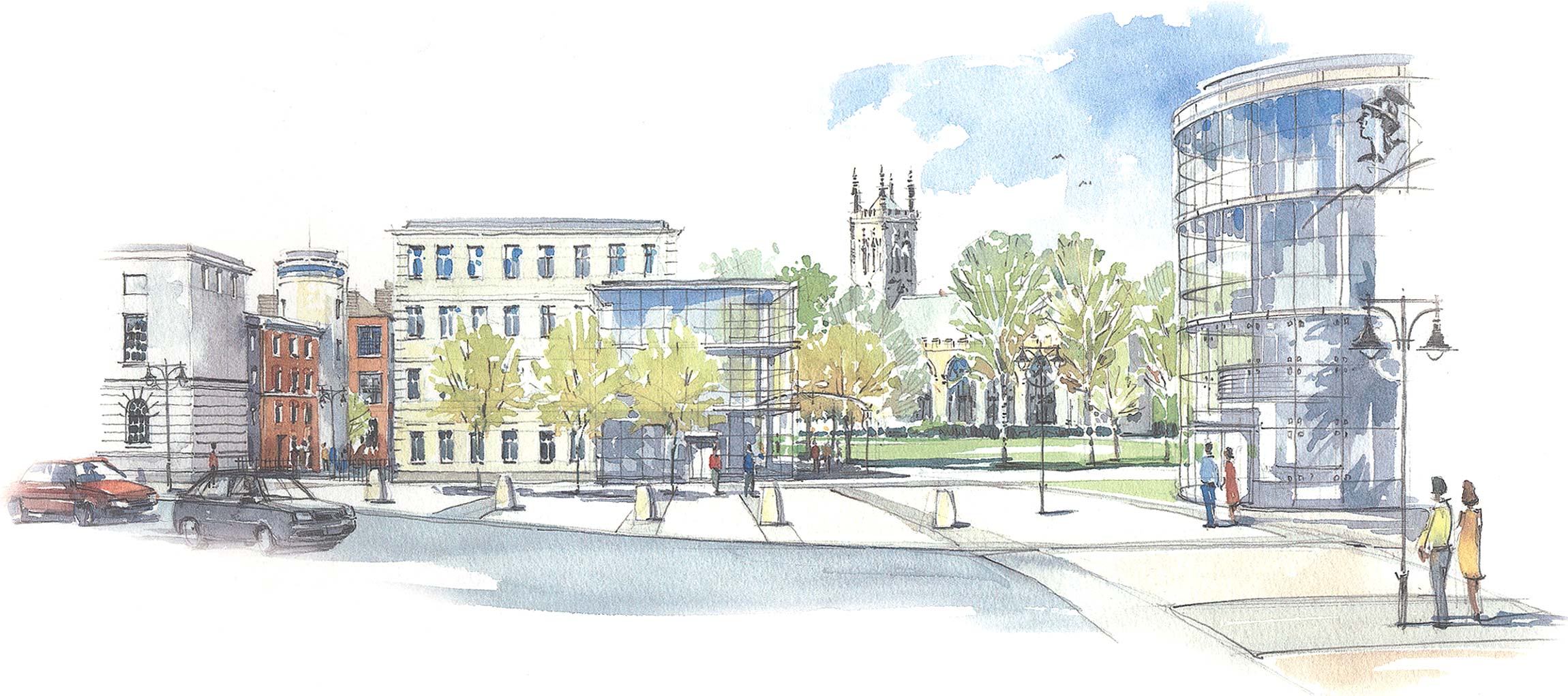This was the opening quote on a night at The Depot, Leicester discussing “The Future of City Centres” at the latest Landmark Planning organised free seminar for property professionals.

The key message was that City Centres have constantly changed over the centuries as they respond to different threats and opportunities. And the pandemic is merely another shock, albeit a large one. 50 years ago Leicester’s City centre and surrounds was home to Corah, Wolsey, Byfords and 100s of smaller manufacturers, with an adopted City slogan of “Leicester Clothes the World”. The City centre moved on and by the last was becoming as successful and prosperous as before, with a very different economic rationale. It will do so again.
The event was the third of a trilogy, as part of the Love Architecture festival. Sir Peter Soulsby had presented the public sector response for principally the public realm, then, at the second event, Nick Marchini showed a private sector response with the redevelopment and repurposing of an Oxford Shopping Centre.
The ambition of the third evening was to link these physical responses to the users and potential users of City centres. It did this by first of all Rob Harland of Loughborough University talking about the mesographic level: namely how people experience and relate to City centres and their physical attributes through a variety of images, particularly at the human scale.
This led naturally onto three successful City centre entrepreneurs Hamza Bodhaniya (Obstrat), Bill Allingham (Steamin Billy) and Pete Gardner (Cocoa Amore) describing their use of the centre. Each chartered their business journey to develop multi-channelled, experiential operations that succeed by incorporating the attractive elements of City centres into their business model. These were very personal stories tinged with both success, failure and painful lessons, but ultimately reinforcing the message that the entrepreneurial spirit is alive and well in Leicester City centre. The common remark was that these experiences were inspirational.
Obviously, such a multifaceted issue as the Future of City Centres could not be resolved in a night. But it showed the centre was alive and kicking and open for business. And there are the people, places and buildings there to ensure the latest renaissance in the twenties occurs.
